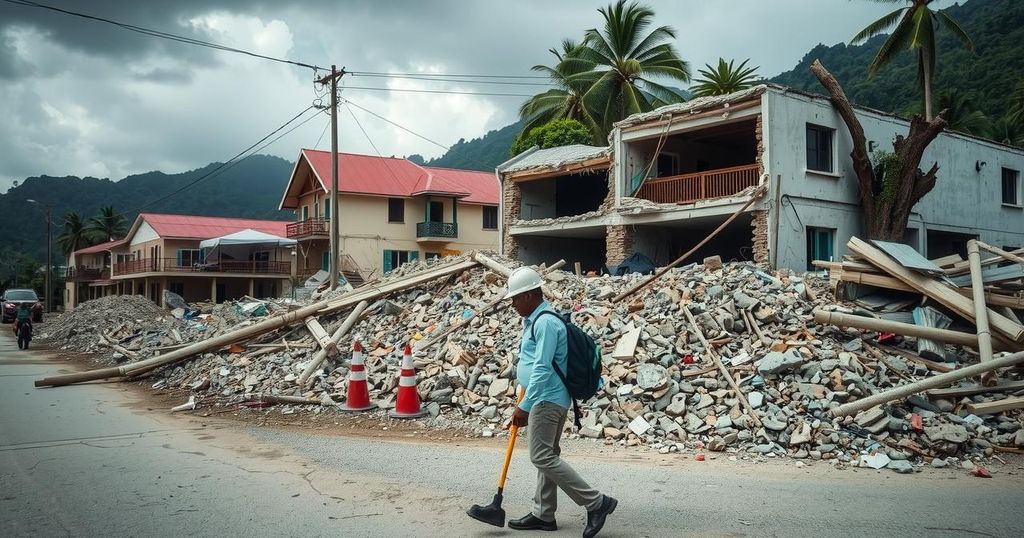World news
ANDREW CARNEGIE, ASIA, BERLIN, BIG FOUR NATIONS, DEMOCRACY, EUROPE, GEORGES CLEMENCEAU, GERMANY, GOVERNMENT, HAITI, HATTIE CARAWAY, JAMARAT, LEGISLATION, MINA, NORTH AMERICA, OF NATIONS, OFFICE OF PRICE ADMINISTRATION, PHILIPPINES, POLITICS, PORT - AU - PRINCE, PRESIDENTIAL ELECTIONS, THEODORE ROOSEVELT, UP, UPI
Jamal Robinson
0 Comments
Historical Events of January 12: From Earthquakes to Political Milestones
On January 12, significant historical events occurred, including Andrew Carnegie’s testimony in 1912, the convening of the Big Four nations in 1919, and Hattie Caraway becoming the first woman U.S. senator in 1932. The 2010 Haiti earthquake caused immense devastation and a cholera outbreak, and recent military actions by the U.S. against Houthi attacks were noted in 2024.
On January 12, various significant historical events occurred. In 1912, industrialist Andrew Carnegie aligned with former President Theodore Roosevelt’s anti-trust stance during his testimony before the Stanley Committee, standing in opposition to President Taft’s trust dissolution plans. In 1919, key allied leaders, including U.S. President Woodrow Wilson and British Prime Minister David Lloyd George, convened in Paris to discuss peace terms that concluded World War I and the establishment of the League of Nations.
The year 1932 marked a milestone in U.S. history as Hattie Caraway from Arkansas became the first woman elected to serve a full Senate term. During World War II, in 1943, the Office of Price Administration of the United States announced substitutions in the sausage production due to wartime rationing, introducing the “Victory Sausages”. In 1986, U.S. Representative Bill Nelson of Florida journeyed into space aboard the shuttle Columbia, accompanied by Franklin Chang-Diaz, the first Hispanic American to reach space.
In 1994, President Bill Clinton requested Attorney General Janet Reno to appoint an independent counsel to investigate the Whitewater land deal, naming New York attorney Robert Fiske. A tragic event occurred in 2006 during the pilgrimage to Mecca when approximately 350 individuals perished due to overcrowding at the Jamarat Bridge. The date notably marks the catastrophic 2010 earthquake in Haiti, where a magnitude-7 tremor struck, leading to immense destruction in the capital, Port-au-Prince, and resulting in the deaths of over 100,000 individuals. This disaster further strained Haiti’s infrastructure and initiated a choleral outbreak that claimed thousands of additional lives in the following years. On January 12, 2024, the United States and its allies executed a significant retaliation against Houthi attacks in the Red Sea, escalating regional tensions.
January 12 has been a notable date in history marked by numerous events that have influenced political, social, and humanitarian landscapes. The date encompasses significant milestones in U.S. political history, including landmark events such as the first female senator’s election and pivotal international meetings that shaped post-World War I diplomacy. It is also a date remembered for tragic disasters that demanded global humanitarian response, particularly the 2010 earthquake in Haiti, highlighting ongoing challenges related to natural disasters and health crises.
In conclusion, January 12 serves as a reminder of both triumphs and tragedies throughout history. It showcases the evolution of political representation in the United States, the international cooperation to end conflicts, and the devastating impacts of natural disasters. The events of this day reflect the resilience of humanity in addressing both challenges and advancements in various domains.
Original Source: www.upi.com




Post Comment